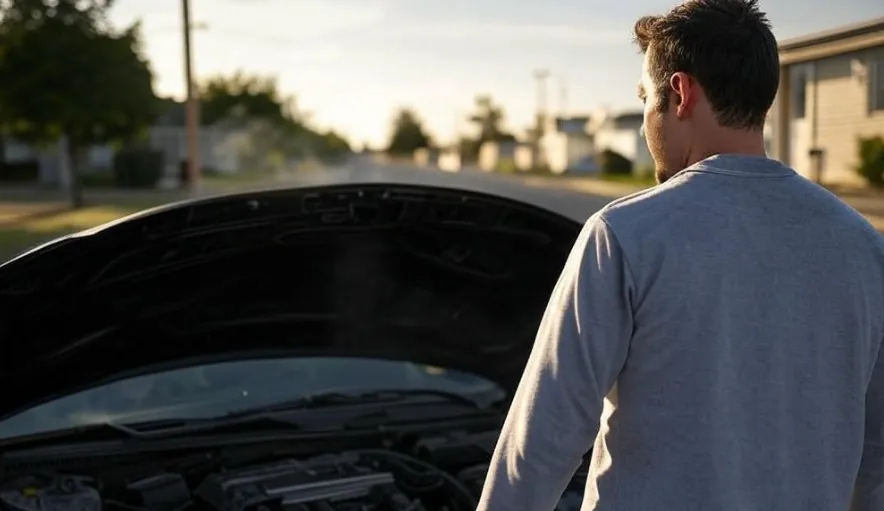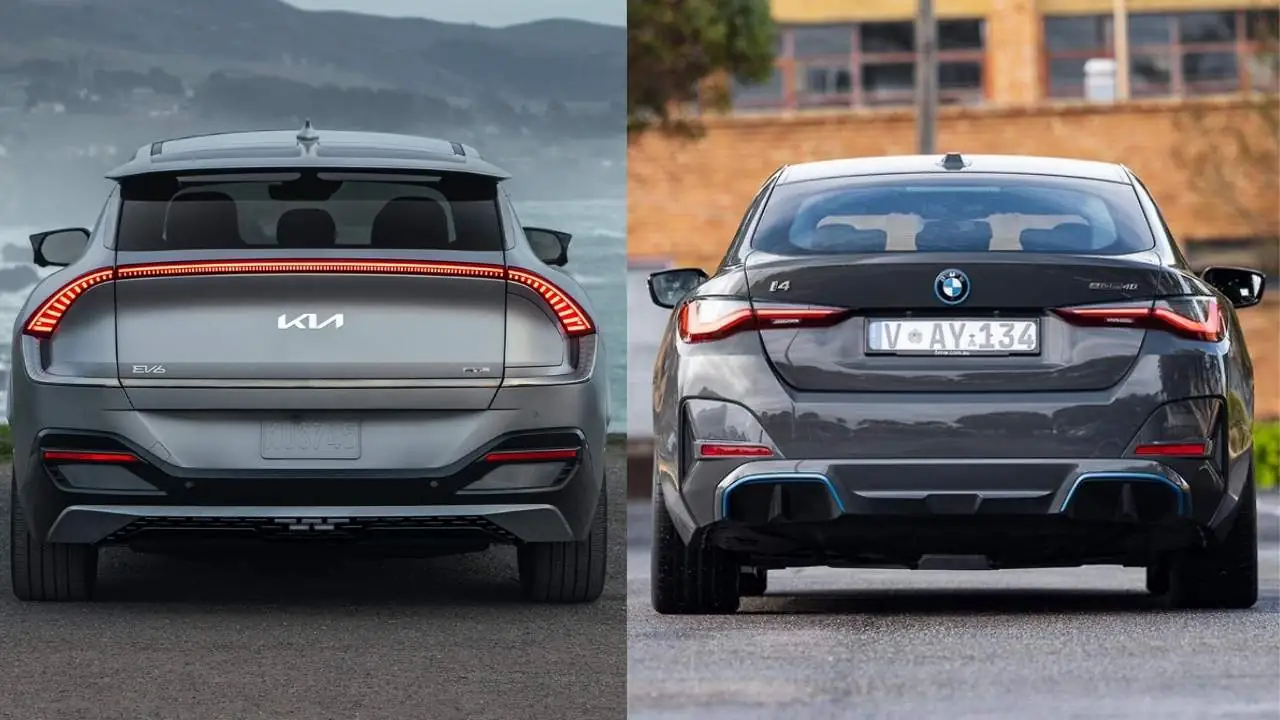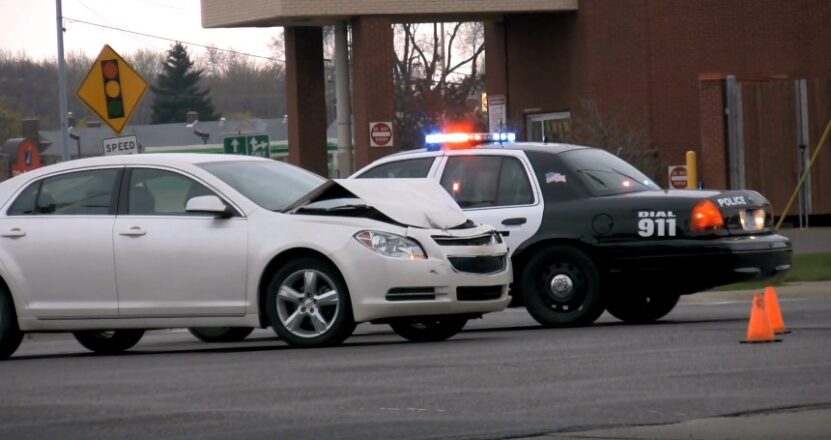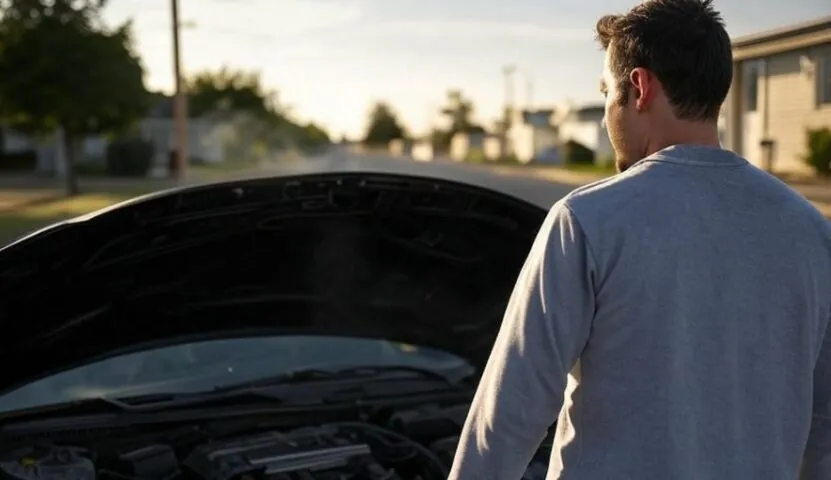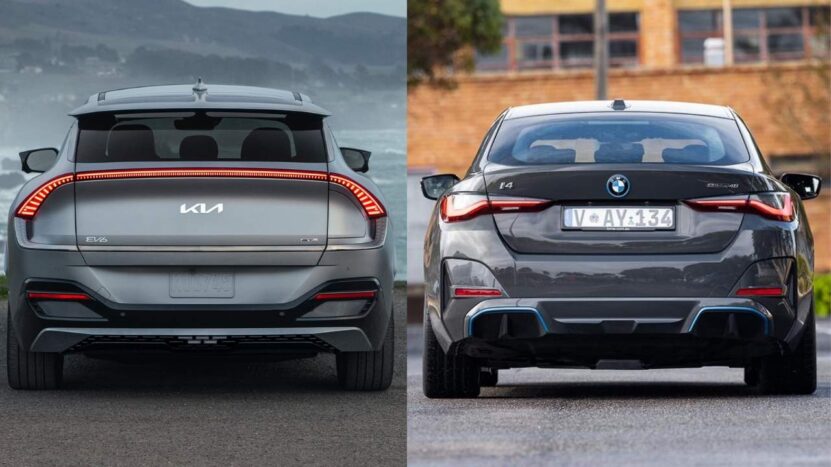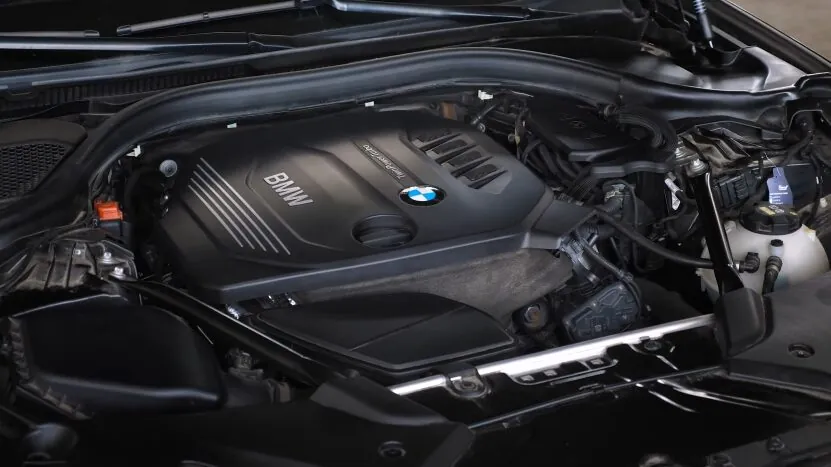
Share Post:
BMW’s N47 and B47 engines are well-known for their impressive fuel efficiency and strong performance, but they also come with a set of common mechanical issues that can be quite challenging for owners.
These engines, widely used in BMW’s 1, 2, 3, 4, and 5 Series models as well as Minis, have been the subject of numerous reports on problems such as timing chain failures, EGR system issues, turbocharger malfunctions, and more.
Each of these issues, if not properly addressed, can lead to significant engine damage and costly repairs.
Table of Contents
Toggle1. Timing Chain Failure
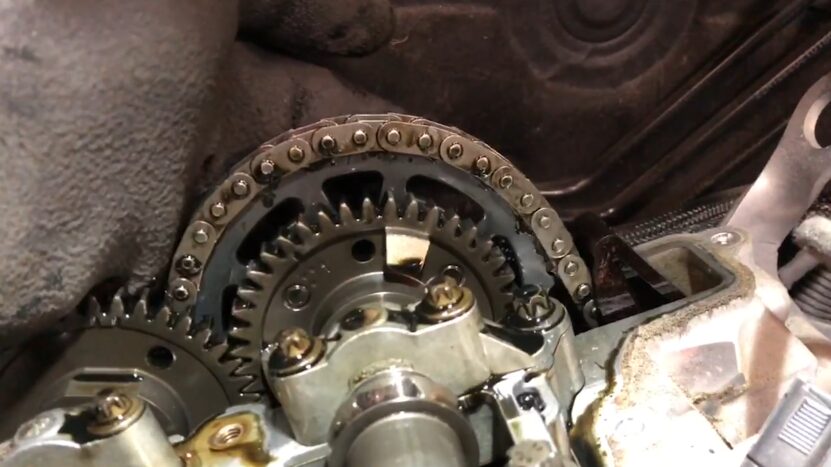
One of the most infamous issues with the N47 engine, in particular, is the premature failure of the timing chain. This problem is typically caused by excessive wear over time, particularly in earlier models of the N47, and can lead to severe engine damage if left unattended.
Symptoms include a rattling noise from the engine, especially during startup, and potential misfires.
Solution
Addressing timing chain failure requires immediate attention once symptoms arise. Replacing the timing chain, along with associated components like the oil pump chain, tensioners, and guide rails, is essential. This is a labor-intensive process and should be done by a qualified mechanic using high-quality, original BMW parts according to DriversAdvice.
Prevention
Regular oil changes with high-quality synthetic oil can extend the life of the timing chain. Some owners opt to replace the timing chain preemptively at around 100,000 miles to avoid catastrophic engine damage.
Component
Replacement Interval
Estimated Cost
Timing Chain
Every 100,000 – 150,000 miles
$1,500 – $3,000
Tensioners and Rails
With Timing Chain
$500 – $800
2. EGR Valve and Cooler Issues
#Recall: BMW EGR Cooler Affecting 800,000 Diesel Engines – https://t.co/J6OoFay13Z #BMWRecalls
— BMWBLOG (@bmwblog) March 18, 2024
The EGR system, designed to reduce nitrogen oxide (NOx) emissions by recirculating a portion of the exhaust gases back into the engine, is a common source of problems in both N47 and B47 engines.
Over time, the EGR valve and cooler can become clogged with carbon deposits, causing poor engine performance, increased emissions, and even engine overheating due to internal coolant leaks.
Solution
EGR issues can be resolved by cleaning or replacing the valve and cooler. In some cases, an EGR delete kit is a more permanent solution. By removing the EGR system, you reduce the risk of carbon buildup and improve engine reliability. However, removing the EGR system may affect emissions compliance, so be sure to check local regulations before proceeding.
If you decide to go this route, high-quality kits are available from manufacturers search Spelab, they offer tailored solutions for N47 and B47 engines.
EGR Delete Benefits
- Reduces carbon buildup in the intake manifold and turbo
- Lowers inlet air temperatures, slightly improving power
- Prevents future EGR-related problems
Prevention
Routine cleaning of the EGR valve and cooler during maintenance checks can help prevent carbon buildup. Using high-quality fuel and adhering to the manufacturer’s service intervals will also reduce the amount of soot and carbon produced by the engine.
Component
Replacement Interval
Cost Approx.
EGR Valve/Cooler
Every 60,000 miles
$300 – $700
EGR Delete Kit
Permanent solution
$100 – $200 (DIY kit)
3. DPF (Diesel Particulate Filter) Clogging
The Diesel Particulate Filter (DPF) is designed to trap soot from the exhaust gases, reducing emissions. However, this filter can become clogged, especially if the vehicle is frequently used for short trips that don’t allow the DPF to regenerate properly.
A clogged DPF results in poor engine performance, reduced fuel efficiency, and in extreme cases, engine failure.
Solution
When the DPF becomes clogged, a regeneration cycle is necessary to burn off the soot. This can be achieved through a long, high-speed drive that allows the exhaust system to reach a temperature high enough for regeneration. If this is not effective, the DPF may need to be manually cleaned or replaced, which can be expensive.
Prevention
To prevent DPF issues, ensure the engine reaches operating temperatures and performs regeneration cycles regularly. High-mileage drivers typically experience fewer DPF problems than those who primarily drive short distances.
Component
Replacement Interval
Cost Approx.
DPF Cleaning
Every 50,000 – 100,000 miles
$400 – $800
DPF Replacement
100,000 – 150,000 miles
$1,500 – $3,000
4. Turbocharger Failure
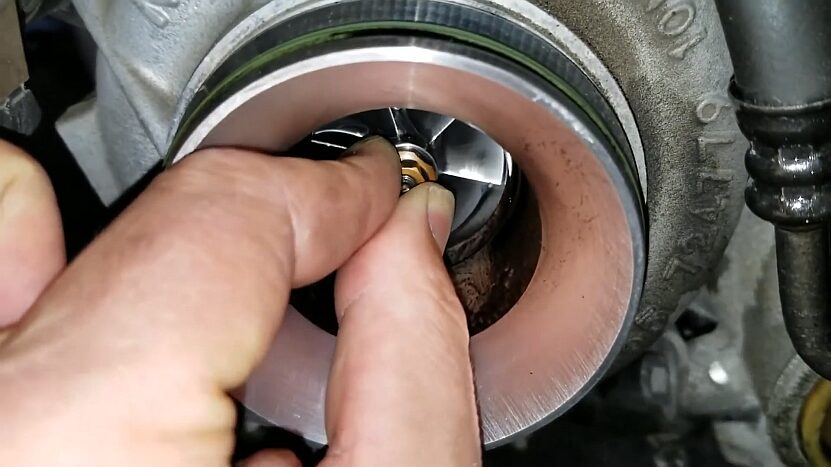
The turbocharger in both the N47 and B47 engines is a key component for boosting performance and fuel efficiency. However, turbo failure is relatively common, often caused by insufficient lubrication or carbon buildup within the system.
Symptoms of a failing turbocharger include reduced power, a whining noise from the engine, and excessive smoke from the exhaust.
Solution
If the turbocharger fails, it typically needs to be rebuilt or replaced. Regular oil changes and the use of high-quality oil can help extend the life of the turbo. Additionally, ensuring that the air intake and exhaust systems remain free of carbon deposits will improve turbo longevity.
Prevention
Turbo longevity can be maximized by adhering to recommended oil change intervals and using high-quality air filters to prevent foreign particles from entering the system.
Component
Replacement Interval
Cost Approx.
Turbocharger
150,000 miles
$1,000 – $2,500
5. Swirl Flap Failure
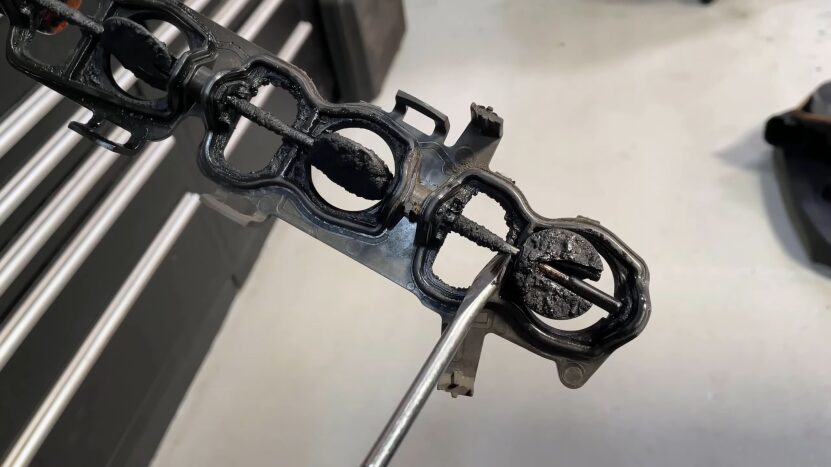
Swirl flaps, found in the intake manifold, are designed to improve airflow at lower engine speeds, enhancing combustion efficiency. Unfortunately, these components can become jammed due to carbon buildup, which leads to poor engine performance and reduced fuel economy.
Solution
To address swirl flap issues, the intake manifold should be cleaned or the flaps replaced. Some owners opt to remove the swirl flaps entirely to prevent future problems, though this can reduce low-end torque and slightly impact fuel economy.
Prevention
Regular cleaning of the intake manifold and using fuel additives that help reduce carbon buildup can prevent swirl flap failure.
Component
Replacement Interval
Cost Approx.
Swirl Flap Cleaning
Every 60,000 miles
$200 – $500
Swirl Flap Removal
Permanent solution
$300 – $600
6. Injector Failure
Fuel injectors play a crucial role in delivering the precise amount of fuel needed for efficient combustion. In the N47 and B47 engines, injector failure is a relatively common issue, often caused by wear and tear or the use of low-quality fuel.
Symptoms of injector failure include rough idling, misfires, excessive smoke from the exhaust, and reduced fuel efficiency. If left unchecked, faulty injectors can lead to more severe engine damage.
Solution
The affected injectors must be replaced to restore engine performance. It’s recommended to use OEM (Original Equipment Manufacturer) injectors for reliability. After replacement, recalibrating the engine control unit (ECU) may also be necessary to ensure optimal operation.
Prevention
Using high-quality fuel and regularly adding injector-cleaning additives can help prolong the lifespan of injectors. Routine maintenance checks should include an inspection of the injectors for signs of wear or clogging.
| Component | Replacement Interval | Cost Approx. |
|---|---|---|
| Fuel Injectors | Every 100,000 miles | $1,000 – $2,500 |
| Injector Cleaning | Every 30,000 – 50,000 miles | $100 – $300 |
7. Oil Pump Failure
@bm_automotive_ireland 142 520d b47 oil pressure problem found#bmw #bmwlife #foryoupage #irishcarscene #b47 #f10 ♬ original sound – BM Automotive
The oil pump in the N47 and B47 engines is critical for maintaining proper lubrication throughout the engine. A failing oil pump can result in low oil pressure, causing increased friction and potential damage to internal components.
Symptoms of oil pump failure include a drop in oil pressure, engine overheating, and warning lights on the dashboard. Ignoring these signs can lead to catastrophic engine failure.
Solution
Replacing the oil pump is necessary to restore proper lubrication and prevent further engine damage. It’s crucial to address this issue promptly, as a failing oil pump can cause extensive wear to components like the timing chain and turbocharger.
Prevention
Regularly monitoring oil pressure and ensuring timely oil changes with high-quality synthetic oil can help reduce stress on the oil pump. If your engine starts showing signs of low oil pressure, have it inspected immediately.
| Component | Replacement Interval | Cost Approx. |
|---|---|---|
| Oil Pump | Every 100,000 – 150,000 miles | $1,000 – $2,000 |
| Oil Pressure Sensor Check | Every 30,000 miles | $100 – $200 |
By addressing these additional issues proactively, owners of N47 and B47 engines can further extend their engines’ lifespans and ensure reliable performance.
Conclusion
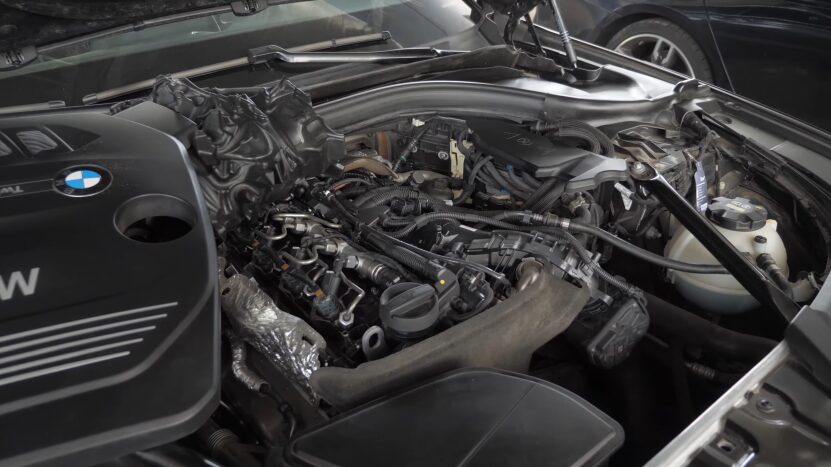
The BMW N47 and B47 engines, while high-performing and efficient, do come with their share of common issues, particularly relating to carbon buildup and wear over time. From the notorious timing chain failures to the more routine concerns with the EGR system and turbochargers, regular maintenance is key to keeping these engines running smoothly.
The use of EGR delete kits can provide a more permanent solution to prevent carbon buildup, but it’s important to weigh the benefits against potential emissions implications. By staying proactive with engine care, owners can avoid costly repairs and prolong the life of their vehicles.
Related Posts:



